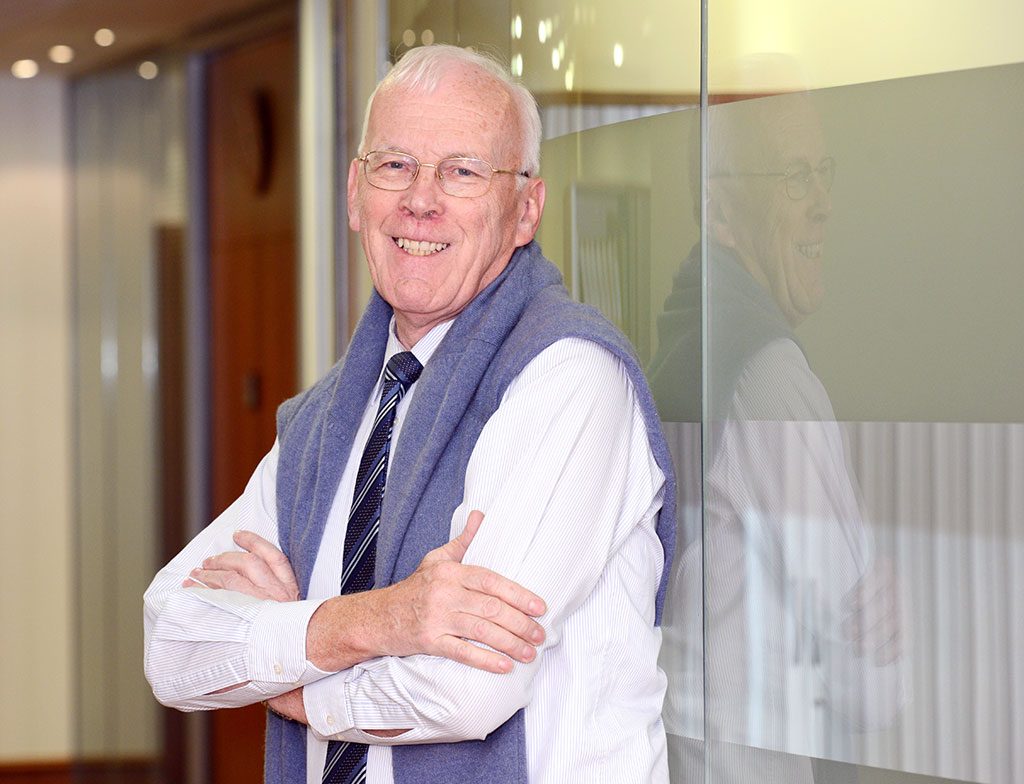
"You’re not giving money away full stop, you’re giving money away to be effective."
Sir Ian Wood GBE, who features as a case study in this year's Coutts Report
Opinion
The Magic Millions
by Siôn Lutley and Joanna Motion - 20 November 2017

"You’re not giving money away full stop, you’re giving money away to be effective."
Sir Ian Wood GBE, who features as a case study in this year's Coutts Report
Opinion
The Magic Millions
by Siôn Lutley and Joanna Motion - 20 November 2017
This year’s Coutts Million Pound Donor report comes with extra oomph: not just analysis of what happened in the world of big gifts in 2016 but also a 10-year retrospective.
Here are observations on five key points from the two reports prepared by the University of Kent’s Centre for Philanthropy.
| 1. | “A boom time for major philanthropy” is how Coutts describes the state of play. The value of million pound plus donations in 2016 reached its highest level yet. It is interesting to note the broad finding that, although the overall total value has gone up by 4.0%, from £1.76bn to £1.83 bn, the number of £1m+ gifts went down by 5.2%, from 326 to 310. (Though, to be fair, the 2016 number was the highest of any year except 2015, so the trend line remains upwards). This pattern echoes some of the reports on philanthropy that are coming out elsewhere in the world, for example, the recent CASE survey of giving to higher education in Australia and New Zealand that also showed a greater reliance on the multi-million pound/dollar gifts rather than “just” the million dollar/pound gifts. |
| 2. | Ten years ago, when it emerged that the sector receiving the largest number of big gifts was …. drumroll … Higher Education, there was a sense of bemusement. Give to universities? Don’t the Brits give to donkeys and lifeboats and international aid, not their alma mater? Then the penny dropped. Almost literally. There’s a difference between the destinations for large numbers of modest gifts and the places where donors direct their biggest philanthropic bets. Now, the Coutts Report reckons that we should expect Higher Ed to remain the number one choice for million – and multimillion – pound donors for the foreseeable future. The reasons are cumulative. Universities are substantial organisations able to manage large gifts robustly and accountably. They have a wide range of opportunities to engage donors. But they have also worked hard over the past decade to become fit for fundraising, or “philanthropy friendly”, as the report terms it. The commitment to becoming a “philanthropic organisation” – rather than an organisation with a fundraising office bolted on at the edge – is not just for universities. All not-for-profits can decide to take that course. |
| 3. | The growth in giving from the corporate sector, especially since 2013, is remarkable – a 10-fold increase over 10 years. As the analysis states, the UK corporate sector does not have a strong tradition of making large charitable gifts and it is the increase in small family or individually-owned companies that is behind this boom. This has to be an exciting opportunity for not-for-profits and their professional fundraising staff. |
| 4. | As a corollary, is the fall in the value of giving by individual donors a worry? Their giving has decreased from £615m via 42 gifts (2006/7) to £313m via 43 gifts (2016). Is it just that donors are giving through companies or foundations? Or is it that donors are giving more but at lower levels? One to watch… The insights from the interviews with individual donors from Shalni Arora to Sir Ian Wood add colour and clarity to understanding the power of personal motivation that underpins some fabulous generosity. |
| 5. | The power of the round number. A million of anything has “cultural resonance”, as the report points out – whether pounds, euros, dollars or lives touched. But is this psychological stretch turning into something of a limitation? “Counter-intuitively”, the report suggests, “this finding should be good news for the charitable sector because it indicates a potential state of under-giving and an opportunity to increase major donations”- not least as currency devaluation and inflation erode the value of pound gifts. The more the impact of what charitable organisations do is evident, the more confidence donors can have in supporting them. As Oxfam’s Harold Sumption famously said, “fundraising is not about asking for money – it’s about work that needs doing.” |
Keep up the good work!